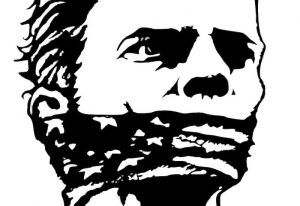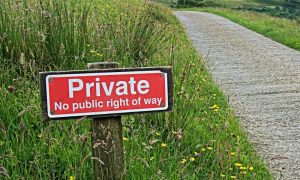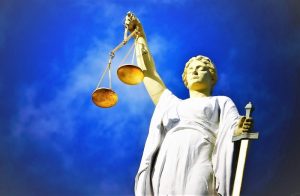Freedom of expression
According to the Universal Declaration of Human Rights, freedom of expression is the right of every individual to hold opinions without interference from others and to seek, receive and impart information and ideas through any media regardless of frontiers. In daily living, this fundamental human right is frequently restricted by a range of different tactics including censorship, restrictive press and media legislation, and harassment of journalists, bloggers, and others who express their opinions, as well as crackdowns on religious minorities and other suppressions of religious freedom.

Related topics
Press freedom
What is freedom of expression?
It is the most important part of any democracy; it is a fundamental human right that goes hand in hand with the other rights that allow us to express our ideas and thoughts on a given issue.
About freedom of expression
It is part of the human rights of people protected by the 1948 Universal Declaration and by the laws of democratic states. Freedom of expression is the right of all human beings to be able to express themselves without being harassed or persecuted because of what they think and believe.
It is important to know that the right to freedom of expression is not absolute, this is because national legislation generally prohibits a person from inciting violence or crime through their thoughts, from discriminating, and from encouraging hatred or war. In a country, whatever it may be, and which enjoys freedom of expression, it is prohibited to promote racial rejection or to encourage murder.
Characteristics
The main characteristics of freedom of expression are as follows:
- It is linked to press freedom because it is the way of transmitting information using the media, preventing the State from exercising control before the broadcast.
- It is threatened by authoritarian governments and dictatorships.
- Messages that are said depending on their background and meaning may be punished by law.
- Through freedom of expression, ideas can be exposed.
- Everyone has the right to freedom of expression and thought.
- It cannot be restricted by indirect means, such as abuse of official or private controls.
- It also has restrictions such as national, racial or religious hatred.
- It is applied on the Internet as it is to all media.
Backgrounds
Some of the antecedents that gave rise to freedom of expression as a right are:
- Freedom of expression in Ancient Greece when Cleisthenes is a statesman managed to introduce the democratic form of government in Athens.
- Hellenism and the Roman Republic where there was a mixed constitution between the assembly, the consuls and the senate.
- The scholastic illustration of Spain.
- Martin Luther’s 95 Theses.
History
Historically, freedom of expression has been guaranteed as a human right recently. Former rulers accepted it only if it did not threaten their own power or the religious authority of their priests. Even the relatively free society of Athens killed its best philosopher, Socrates, for expressing ideas he considered unacceptable.
In the Judeo-Christian tradition, the right to freedom of expression is recent, and in religions such as Islam, it is basically forbidden. In the West, the Catholic Church had the power of expression until the Protestant Reformation ended the Church’s monopoly on truth, giving Christians the right to interpret Scripture more freely.
In the 17th century, John Locke said that the proper function of the state is to guarantee the human rights of its people. The Glorious Revolution of 1688 was inspired by religious tolerance and freedom of expression in religious affairs. In 1776, the U.S. Declaration of Independence affirmed the Lockian principle that the function of government is to protect freedom as a human right given not by the state but by God.
The French Declaration of the Rights of Man and of the Citizen, adopted on August 26, 1789, declared that all citizens could speak, write, and print freely, but that they were also responsible for abuses of this freedom. After the Second World War, the United Nations adopted the Universal Declaration of Human Rights, guaranteeing the right to freedom of expression.
Objectives of freedom of expression
The objectives of freedom of expression are as follows
- Respect, protect, promote and guarantee, under the principle of equality and non-discrimination, the right to freedom of expression of individuals.
- To achieve greater respect for human rights and fundamental freedoms in the media.
- Establish internationally registered norms on freedom of expression and information.
- Encourage responsibility, ethics and minimum standards of professional quality in journalism.
- Enhance the role of the media in democratic
Advantages
The advantages of freedom of expression are:
- It gives us the opportunity to express our ideas, thoughts and opinions without being censored.
- We can express what we think about specific issues.
- It reminds us that we all have human rights which cannot be overlooked.
Disadvantages
Being a means of expression in which ideas come to light, the following disadvantages can be presented:
- Death threats.
- Hurtful and negative comments.
- Employees may lose their jobs depending on the comments they make, mainly on social networks.
- Bribery may occur.
- Slander may result.
Importance
Freedom of expression is important because it is one of the most important pillars that must exist within a democracy, because without it, it would not be possible to say that democracy reigns in a given place. It is the main weapon so that, the different social groups that make up a State can give their opinions and debate peacefully on some topics of interest.
Without freedom of expression, the entire people would be repressed and could not defend themselves against the decisions that the government might make, expression would be prohibited, and society would probably end up in a revolution.
Phrases on freedom of expression
Some phrases that have been mentioned in support of freedom of expression are the following:
- Without freedom of thought, freedom of expression is useless.
- The press is the artillery of freedom.
- In a truly free state, thought and speech must be free.
- If we do not believe in the freedom of expression of those we despise, we do not believe in it at all.
- Freedom of expression is saying what people don’t want to hear.
- I do not agree with what you say, but I will defend with my life your right to express it.
Freedom of expression by country
- Spain: some experts consider that today there is less freedom of expression in this country mainly due to the creation of the so-called Gag Law, which has set off the alarms of the Platform in Defense of Freedom of Information. This law has come to interfere with the ability of the country’s inhabitants to express themselves and has even imprisoned people for one twit.
- Costa Rica: the media work for their own benefit and that is why they direct the information and opinion of Costa Ricans. Many of the television media hide news that could affect them and are building a world of lies to maintain their empires, the information they provide can even become limited, tabloid and biased.
- Colombia: there is the problem that has to do with the actors that threaten freedom of expression and these mainly come from drug trafficking, paramilitarism and the State.
Examples
Some examples of freedom of expression are as follows:
- When people have the capacity to express their political ideas.
- The information that journalists give because they keep us informed.
- The debates that take place between one or several people in which opinions are expressed.
How to cite this article?
Briceño V., Gabriela. (2019). Freedom of expression. Recovered on 23 February, 2024, de Euston96: https://www.euston96.com/en/freedom-of-expression/









